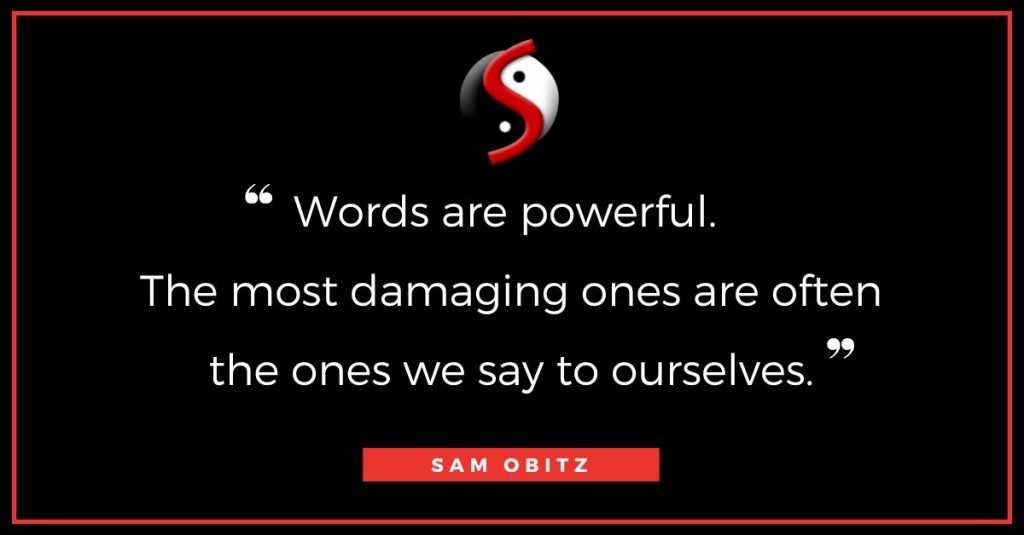The Voice in Your Head Isn’t You
If you’ve ever noticed that your day was going fine, and then one slight misstep caused an avalanche of internal criticism, you’re not alone.
That voice in your head that tells you you’re not doing enough, not good enough, or that you’re somehow falling behind? That voice isn’t you. It’s not the real you. It’s a mental recording you’ve inherited, often without even realizing it.
And if you don’t pause to examine it and take steps to modify it, it will run your life.
The Inheritance We Don’t Talk About
Most people assume their inner voice is just their own personality expressing itself. But in truth, much of our internal self-talk is learned. It’s absorbed over years of watching, listening, and interacting with the people who raised us, taught us, and coached us. We adopt not just what they said, but how they said it and when they said it.
Maybe your dad never gave you credit for the things you accomplished. Maybe your coach only pointed out what went wrong. Over time, those voices become the way we speak to ourselves.
You may go off to college thinking, “Finally, I’m free from that pressure,” only to discover the critical voice followed you. Why? Because now it lives inside you. And until you recognize it, question it, and begin to rewire it, you will continue to relate to it as if it’s the truth.
Would You Talk to a Friend That Way?
Here’s a simple exercise that usually stops people in their tracks: Write down some of the things you regularly say to yourself on a hard day.
Now imagine saying those exact words to a close friend after they had a tough day.
You probably wouldn’t.
You would not think of telling them, “You’re a failure,” or “You’ll never get it together?” or “You’ll never amount to anything.”
Yet we habitually say these things to ourselves without hesitation when we are in the midst of our struggles.
I always say, “If you treated your friends the way you treat yourself, you would not have any friends.” That statement isn’t meant to be harsh; it’s meant to wake you up! To remind you that you are not your thoughts. Especially the ones that beat you up.
Replacing Judgment with Observation
One of the most significant breakthroughs I see people have, whether they’re elite athletes, business leaders, or just working through life’s challenges, is when they realize they don’t have to believe everything they think.
“Thoughts are not facts.”
You can notice a thought like “I didn’t get enough done today” without turning it into a judgment of your worth. You can say to yourself, “I still have work to do” instead of, “I’m such a screwup.”
This shift from judgment to observation creates space. Space to make new choices. Space to speak to yourself with the same level of clarity and compassion you offer others. Space to actually enjoy the life you’re building, rather than constantly feeling like you’re not enough.
Catch It, Identify the Thinking Errors in It, Then Reframe It
Whenever you notice that harsh inner voice showing up, pause and identify what’s happening. Identify which thinking errors you are making in your thoughts. Is this extreme thinking? Is this jumping to conclusions? Is this a reality filter that’s blocking out everything that’s actually going well?
Once you identify the errors, then reframe your thoughts objectively.
Here’s an example using my TEA Form method:
- Thought: “I’m not going to be able to handle today.”
- Error(s) Jumping to Conclusions, Extreme Thinking, and Reality Filter*
- Analysis (AKA Reframed Thought): “I don’t know that. I’ve handled tough days before, and I’ve already gotten several important things done this morning.”
That is not positive thinking crap, it’s clarity through objective analysis. It’s also the beginning of training your mind to look at what’s real… For a change!
You can follow Sam on Twitter: @SuperTaoInc
*= For the sake of brevity, I did not list all of the thinking errors in this thought.


